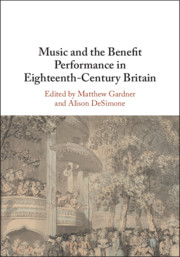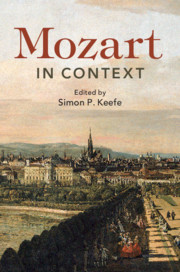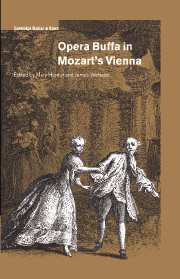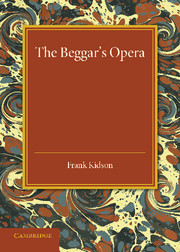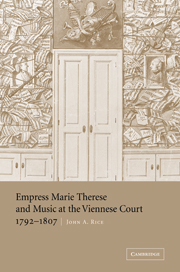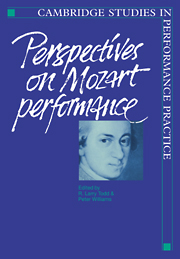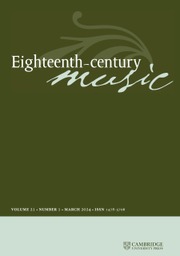Music and the Benefit Performance in Eighteenth-Century Britain
- Editors:
- Matthew Gardner, Eberhard-Karls-Universität Tübingen, Germany
- Alison DeSimone, University of Missouri, Kansas City
- Date Published: June 2022
- availability: Available
- format: Paperback
- isbn: 9781108730150
Paperback
Other available formats:
Hardback, eBook
Looking for an inspection copy?
This title is not currently available on inspection
-
In the early eighteenth century, the benefit performance became an essential component of commercial music-making in Britain. Benefits, adapted from the spoken theatre, provided a new model from which instrumentalists, singers, and composers could reap financial and professional rewards. Benefits could be given as theatre pieces, concerts, or opera performances for the benefit of individual performers; or in aid of specific organizations. The benefit changed Britain's musico-theatrical landscape during this time and these special performances became a prototype for similar types of events in other European and American cities. Indeed, the charity benefit became a musical phenomenon in its own right, leading, for example, to the lasting success of Handel's Messiah. By examining benefits from a musical perspective - including performers, audiences, and institutions - the twelve chapters in this collection present the first study of the various ways in which music became associated with the benefit system in eighteenth-century Britain.
Read more- Reveals how benefits helped eighteenth-century musicians establish themselves within the commercial enterprises of Britain's urban centres
- Offers a holistic approach to understanding musical life in eighteenth-century Britain, with equal focus on performers, composers, and audiences
- Combines cultural history, social history, economic history, musicology, and theatre history to understand better the many facets of this distinctive phenomenon
Customer reviews
Not yet reviewed
Be the first to review
Review was not posted due to profanity
×Product details
- Date Published: June 2022
- format: Paperback
- isbn: 9781108730150
- length: 302 pages
- dimensions: 243 x 168 x 15 mm
- weight: 0.53kg
- contains: 2 b/w illus. 6 tables 6 music examples
- availability: Available
Table of Contents
Introduction Alison DeSimone and Matthew Gardner
Part I. Musical Benefits in the London Theatre: Networks and Repertories:
1. Risks and rewards: benefits and their financial impact on actors, authors, singers, and other musicians in London, c. 1690–1730 Kathryn Lowerre
2. With several entertainments of singing and dancing: London Theatre benefits, 1700–1725 Olive Baldwin and Thelma Wilson
3. Concertos 'upon the stage' in early Hanoverian London: the instrumental counterpart to opera Seria Robert G. Rawson
4. Cobblers, country fairs, and cross-dressing: benefits and the development of ballad opera Vanessa Rogers
Part II. Beyond London: Mimicry or Originality?:
5. Benefit concerts in the North of England: more than just musical entertainment Roz Southey
6. Amateur music-making, professional musicians, and benefit concerts in Edinburgh Stefanie Acquavella-Rauch
7. English music in benefit concerts: Henry Purcell and the next generation Amanda Eubanks Winkler
8. Strategies of performance: benefits, professional singers, and Italian opera in the early eighteenth century Alison DeSimone
Part IV. Charity Benefits:
9. The Mercer's Hospital Charity Services: music charity in eighteenth-century Dublin Tríona O'Hanlon
10. English Oratorio and charity benefits in mid-eighteenth-century London Matthew Gardner
Part V. The Role of the Audience:
11. Encountering 'the most extraordinary prodigy': meeting Master Mozart in Georgian London John Irving
12. Benefits: Cui Bono? David Hunter.
Sorry, this resource is locked
Please register or sign in to request access. If you are having problems accessing these resources please email [email protected]
Register Sign in» Proceed
You are now leaving the Cambridge University Press website. Your eBook purchase and download will be completed by our partner www.ebooks.com. Please see the permission section of the www.ebooks.com catalogue page for details of the print & copy limits on our eBooks.
Continue ×Are you sure you want to delete your account?
This cannot be undone.
Thank you for your feedback which will help us improve our service.
If you requested a response, we will make sure to get back to you shortly.
×
